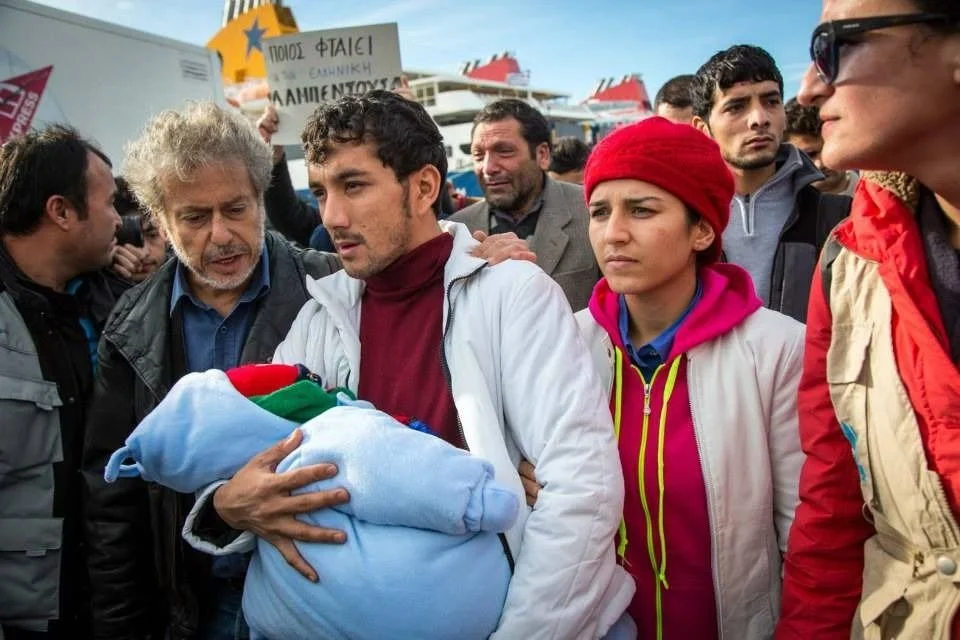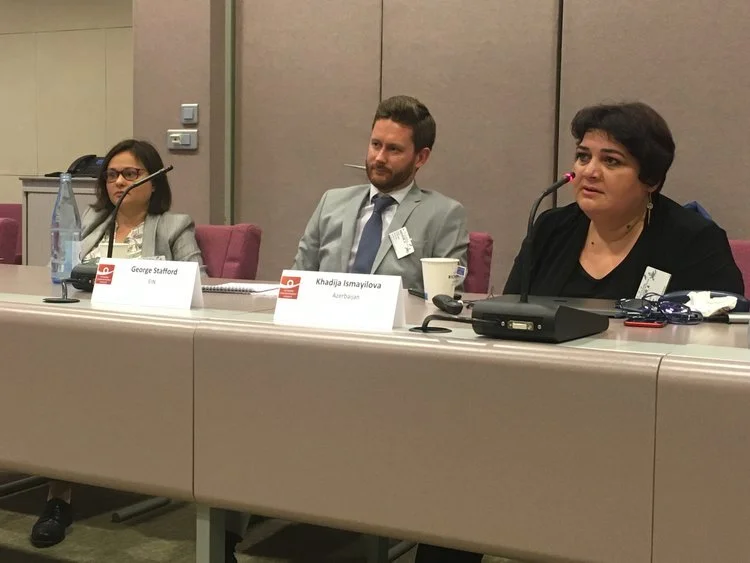In Focus:
THE CASE OF ILGAR MAMMADOV
Azerbaijani politician and activist Ilgar Mammadov was imprisoned for his political activities in 2013. He won a case at the European Court of Human Rights, which held that his prosecution had been politically motivated.
Mr Mammadov was eventually released from jail. However, he has not yet been acquitted of his politically motivated convictions. Without an acquittal he is barred from standing in parliamentary or presidential elections.
After winning a third judgment from the European Court of Human Rights, Mr Mammadov calls on the Council of Europe to ensure full implementation of the Courts’ rulings through his full acquittal.
Our mission:

Making human rights a reality.
We work with NGOs and others across Europe, to make judgments of the European Court of Human Rights provide real protections of fundamental rights.

On November 22nd, 2024, EIN held the latest civil society briefing for permanent Representations of the Council of Europe, ahead of the 1514th Committee of Ministers Human Rights Meeting which will be held between 3rd – 5th December 2024.
For over 20 years, Turkish minorities in Greece have been denied the opportunity to create associations linked to their Turkish heritage.
The case concerned a complaint made by Khalid Bagirov, a lawyer and member of the Azerbaijani Bar Association (ABA), that he had been suspended from practising law and then disbarred because of statements he had made about police brutality and the functioning of the judicial system in the country.
The Court found a violation of Article 8 (right to private life) and Article 10 (freedom of expression) of the Convention.
The applicant, Natig Mehman oglu Jafarov is a co-founder of the political movement Republican Alternative Civic Movement (REAL). In 2016 REAL launched a campaign against amendments to the Constitution envisaged by a draft Referendum Act. In August 2016 Mr Jafarov was arrested on the criminal charges of illegal entrepreneurship and aggravated use of power. The ECtHR found a violation of Article 3 (prohibition of inhuman and degrading treatment), Article 5 (rights to liberty and security) and Article 18 (limitation on use of restriction on rights).
The case concerned two applicants arrested and prosecuted on drug charges, which they alleged were false and that they were in fact arrested and detained because of the political graffiti they had painted on the statue of a former president. Both applicants were members of NIDA, a civil society movement. They were arrested in May 2016 after having painted a graffiti on a statue of Heydar Aliyev, the former president of Azerbaijan.
The Court found a violation of Articles 3, 5, 10 and 18 of ECHR.
In 2010, having reviewed the applications by the High Council of Justice (HCJ), the Ukrainian Parliament voted for the dismissal of Mr. Volkov for ‘breach of oath.’ The applicant complained that the proceedings before the HCJ had lacked impartiality and independence; given the way in which the HCJ was composed and alleged conflicts of interest. Additionally, Mr. Volkov claimed that he was a victim of political corruption.
Mr. Sarban was detained in the remand centre of the Centre for Fighting Economic Crime and Corruption (CFECC) between 12th November 2004 and 19th January 2005 for alleged abuse of power in relation to a purchase of 40 ambulances by the Chişinău Mayoralty. A CFECC officer later stated that the case against the applicant had been fabricated for political reasons. Mr. Sarban made numerous appeals for release based on his bad state of health, his irreproachable conduct during the investigation and the unlikelihood of his leaving the country. They were all refused by the courts.
The case concerns two applicants of Jewish and Roma origin, who are barred by law from standing for election in the House of Peoples of the Parliamentary Assembly and for the state presidency in Bosnia and Herzegovina.
The applicants complained that, despite being fully qualified and possessing experience, they were prevented by the Constitution from standing for election for the reason of their ethnicity, which was discriminatory and breached their elective rights.
Khadija Ismayilova is a well-known Azerbaijani investigative journalist, whose work has been highly critical of the government. Due to her activities, Ms Ismayilova has been the victim of harassment, threats, a smear campaign and an unjustified prosecution. These events led to a series of judgments in her favour at the European Court of Human Rights - which remain unimplemented.
In 2005 the authorities in Chișinău, Moldova, banned a march planned by an LGBT organisation, to deliberately discourage the promotion of LGBT rights. In 2012 the European Court of Human Rights held that the ban was discriminatory and breached the right to peaceful assembly (art.11 ECHR).
The case of Genderdoc is an example of how NGOs - through engagement with national authorities and submissions to the Committee of Ministers - can ensure that proper information is provided in the implementation process, that monitoring continues while it is still needed, that adequate reforms can be adopted, and that a judgment can lead to rights in practice.
The case concerns the death of an individual suffering from psychiatric disorders who was the victim of ill-treatment during a police operation. The Court held unanimously that there had been a violation of Article 3 of the ECHR (prohibition of inhuman or degrading treatment).
At the time of writing, the case remains open. However, no NGO communications have been submitted.



















